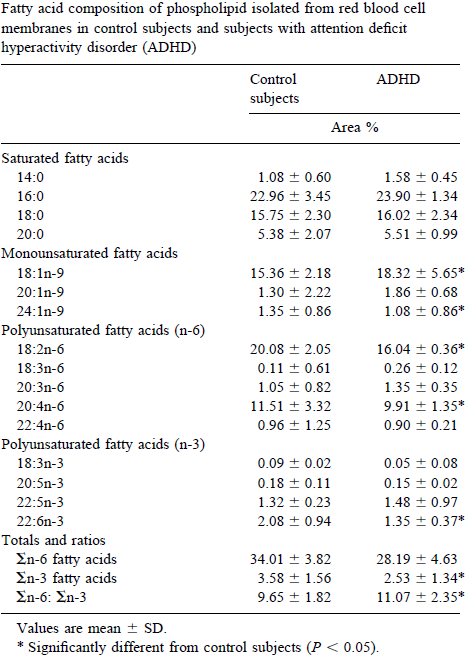R & D platform
-
Industrial Production
-
Mechanism Study
-
Clinical Research
The effect of nervonic acid on children's attention
Children's lack of concentration often affects academic performance, while concentration is closely related to nutrients such as fatty acids. In the Taiwan area, 58 children with insufficient attention (mean age 8.5 years) and 52 normal children (average age 7.9 years) who were in the control group were studied. The food model was used to record the three-day diet. Fasting blood for 8 hours and measuring the fatty acid in the blood. The results showed that oleic acid (18:1n-9) was significantly elevated in phospholipids isolated from attention-deficient children's red blood cell (RBC) membranes compared to the control group, while nervonic acid (24:1n-9 ), linoleic acid (18:2n-6), arachidonic acid (20:4n-6), and docosahexaenoic acid (22:6n-3) were significantly reduced.

References:Jiun-Rong Chen et al. 2004. Dietary patterns and blood fatty acid composition in children with attention-deficit hyperactivity disorder in Taiwan, Journal of Nutritional Biochemistry, 15, 467–472.


